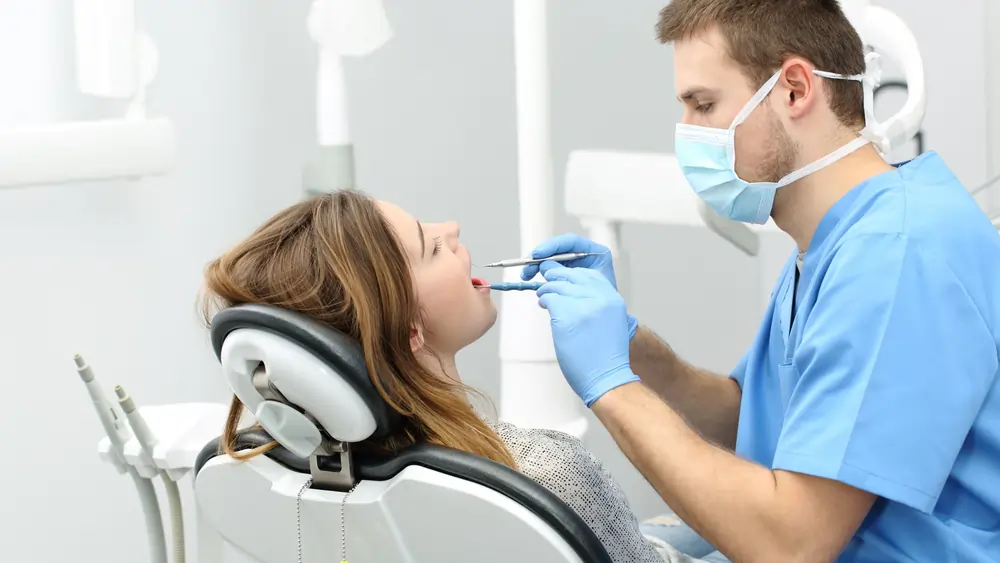If you’ve ever received anesthetics at your dentist, you’ve most likely experienced dental numbing. Understanding how long it lasts and the factors that influence its duration can significantly impact your comfort as the anesthesia wears off.
In this guide, our dental specialists will answer the question “How long does dental numbing last?” and explain the key factors that affect the length of numbing, providing an overview of how long the numbing lasts depending on the agent used.
Types of Dental Numbing Agents And How Long They Last
Dental numbing, also known as local anesthesia, is a technique used by dentists to block pain during procedures. It involves the injection or application of anesthetic agents to numb the area being treated, allowing patients to undergo dental work without discomfort. This procedure is commonly used for fillings, dental implants, root canals, and other treatments.
When you undergo a dental procedure, your dentist may use different types of numbing agents, each with unique properties that determine how long the numbness will last.
Understanding the differences between these numbing agents can help you know what to expect regarding the duration of numbness after your dental visit.

Topical Anesthetics
Dentists may apply a topical anaesthetic to numb the surface area of the gums. This numbing effect is short-lived — usually lasting just around 5–15 minutes.
Local Anesthetics
These temporarily block the nerve signals in a specific area, providing pain relief during treatment.
Examples of common local anesthetics include:
- Lidocaine: Provides numbness for about 1–2 hours.
- Articaine: Can last slightly longer than lidocaine.
- Mepivacaine: Typically lasts 1–2 hours; ideal for minor procedures.
- Bupivacaine: Offers relief for 4–6 hours.
Epinephrine-Enhanced Solutions: For Long and Extra Long Anesthetics
Combining anesthetics with epinephrine can extend its effects by constricting blood vessels and keeping the drug localized.
How long does it take for dental anesthesia to wear off?
| Type of Local Anesthetic | Typical Duration of Numbing | Description & Common Treatment Types |
|---|---|---|
| Topical Anesthetic (e.g., Benzocaine) | 5–15 minutes | Used for superficial gum treatments. |
| Lidocaine | 1–2 hours | Standard anesthetic for fillings and gum treatments. |
| Mepivacaine | 1–2 hours | Ideal for cavity fillings; wears off faster. |
| Lidocaine with Epinephrine | 2–4 hours | Used in longer procedures like root canals and crown work. |
| Articaine | 2–3 hours | Preferred for deep or complex procedures. |
| Bupivacaine | 4–6 hours | Used for surgeries like wisdom tooth extraction. |
| Bupivacaine with Epinephrine | 6–8 hours or longer | Ideal for lengthy/invasive surgeries. |
Lingering Dental Numbing
Lingering dental numbing can last for several hours even after the drug’s effect ends. This may affect your lips, cheeks, or tongue.
- Duration: 3 to 5 hours depending on the anesthetic.
- Challenge: Eating, drinking, and speaking may be harder.
- Tip: Avoid hot foods and plan light activities.
Factors Affecting How Long Dental Numbing Lasts
Understanding these variables explains why the numbness duration varies from person to person.
Type of Procedure
Invasive treatments like dental bridges or root canals may require stronger or longer-lasting anesthesia.
Individual Sensitivity and Metabolism
People with faster metabolisms may process anesthetics faster; slower metabolisms prolong effects.
Dosage and Concentration of the Anesthetic
Higher doses mean longer numbness. Your dentist adjusts dosage based on procedure length.
Location of the Injection
Injections in denser bone areas like the lower jaw or near large nerves often last longer.
Health Conditions and Medications
Conditions like liver/kidney disorders or certain medications can impact anesthetic processing.
What if the Dental Numbness Doesn’t Wear off?
In rare cases, prolonged numbness might indicate an issue:
- Beyond expected time? Contact your dentist.
- Tingling/swelling? Might be nerve-related — get checked.
- Pain/discomfort? Could suggest infection or reaction.
- Difficulty moving mouth? May indicate nerve impact.
- Allergic reaction? Seek medical help immediately.
When in doubt, contact your dentist.
Wrapping Up: What You Need to Know About the Length of Dental Numbing
Dental numbing is safe and effective. Effects vary based on the anesthetic, procedure, and individual biology.
Expect numbness to last between 1 and 8 hours depending on the agent.
Have questions? Our experts are here to help before, during, or after your procedure.
FAQ
Hydration, light massage (if advised), and warm compresses may help. In some cases, dentists can use reversal agents.
Yes, differences in procedure type, anesthetic, and your body’s response can affect how long it lasts.
Usually shorter due to faster metabolism and lower doses.
Itching or tingling is normal as nerves regain sensation. If it persists, contact your dentist.
Usually 1–2 hours; up to 3–4 hours with longer-acting anesthetics.
Typically 1–2 hours; 2–4 hours with epinephrine.
2–5 hours; up to 6–8 with long-acting options like bupivacaine.
Usually 2–4 hours; up to 6–8 hours with bupivacaine.




